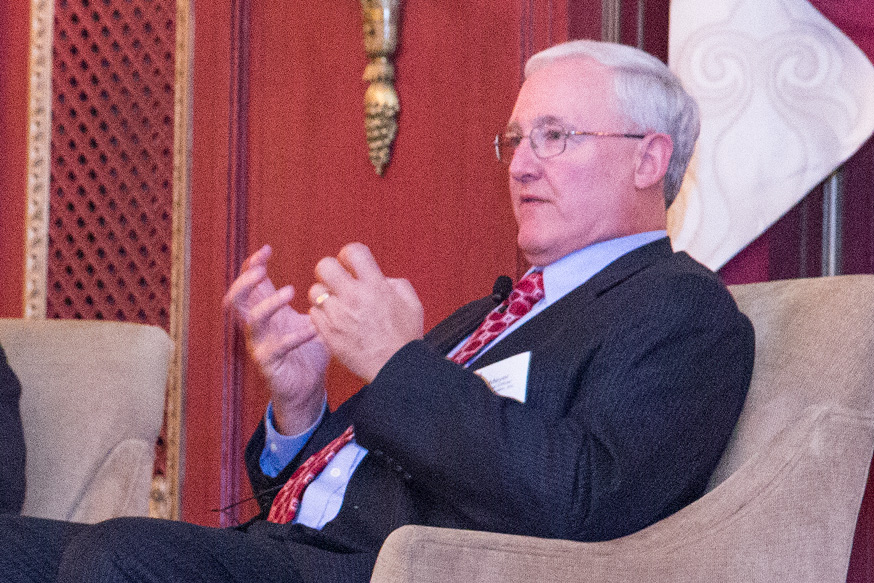
Russ Meyer, CFO of White Castle
"If your company is facing a generational transition, you can't start the process early enough," Russ Meyer told Financial Executive International's Private Company Forum in Chicago. "It's important to get the family members talking -- and not just talking, also listening. It's also helpful to get outside help that's expert with family business planning, since they'll bring experience and background that everyone can relate to."
White Castle is a 93-year-old restaurant chain and frozen food company that's owned and operated by the founding Ingram family. The company has more than 400 restaurants in 12 states, and offers frozen burgers in grocery stores throughout the United States.
Meyer said planning for the management transition from the third generation to the fourth began about 15 years ago, with a series of annual family meetings. Family business experts were brought in to help the company define roles and responsibilities, and the company's governance structure evolved to include non-family board members.
"We have family members with different levels of involvement, and it's much more positive than family members being remote and not understanding what's going on in the business," Meyer said.
Communication and Accountability
One of the other success factors Meyer stressed to private company financial leaders is the importance of communicating effectively with shareholders. Like their counterparts in public companies, private company shareholders, understandably, want to know how the company is doing and where it is pursuing growth.
But one key difference, Meyer said, is private company shareholders are often willing to take a longer-term viewpoint.
"Communications with shareholders is critical," Meyer said. "You have to understand the ownership and what motivates them, but with private ownership, you can take a longer-term view and you're able to do things with a long-term mindset."
As an example, Meyer cited the company's expansion into frozen food. White Castle began offering frozen burgers in grocery stores, in part, because it saw higher growth potential in that market than in merely opening more capital-intensive restaurants.
Now the product line's sales are growing more than 20 percent annually, and White Castle opened a third, state-of-the art, processing plant to meet demand and create more room for expansion.
"To see that grow from an idea and a spreadsheet into a $100 million business has been gratifying."
Customer Loyalty
Meyer also described the loyalty and strong association White Castle customers feel for the often-quirky, "quarter-turn off center" brand. Meyer said White Castle celebrates the "memorable moments" customers associate with the restaurant, such as enjoying sliders on long road trips or to wrap up a social evening.
"We don't do anything normally, and we know we have to have fun with this," Meyer said. "What's unique is the attachment and how people are involved with the brand. People remember the good times they've associated with White Castle."